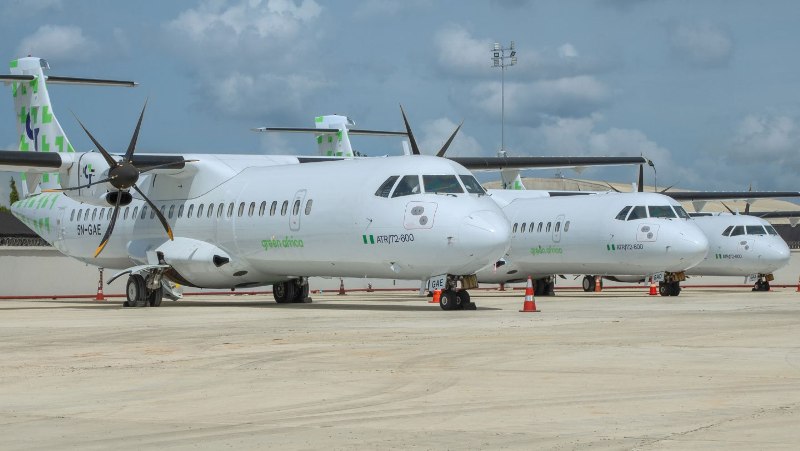AFCAC Says Good Airport Infrastructure In Nigeria Is Required For SAATM Implementation
The African Civil Aviation Commission (AFCAC) has identified improvement in airports infrastructure as a recommended action for Nigeria to enable implementation of the Yamoussoukro Decision (YD) and the Single African Air Transport Market (SAATM).
The Secretary General of AFCAC, Ms. Olufunke Adeyemi in a presentation at the SAATM Pilot Implementation Project Road Show held in Abuja, further identified support for domestic airlines to attain and or maintain IOSA registration as another requirement and called on Nigeria to “have a favourable environment for successful YD/SAATM implementation.”
“So far, 35 member States have signed the Solemn Commitment to fully implement the SAATM. 23 out of them have further signed the MoI to amend the provisions of their BASAs (YD Article 2) on the one hand, and to ensure that future or to be concluded BASAs comply fully with the YD on the other hand,” she said, listing the non physical barriers to implementation of the SAATM as reciprocity, Non-Harmonization of Application Costs (Foreign Ops Specs), Non/late Approval of Carrier Designations, High Inspection Costs, Lack of consistency, Visa and Cargo facilitation Issues.
In his opening address, Nigeria’s Minister of Aviation, Senator Hadi Sirika said: “As we all aware that the air transport market in sub-Saharan Africa presents a strong dichotomy. In Southern and Eastern Africa the market is growing, with few major African carriers dominating international and domestic markets which are becoming increasingly concentrated. In contrast, in Central and Western Africa, the sector is stagnating, with the vacuum created by the collapse of mostly state owned airlines and a few privately owned airlines in the region. Nigeria is working towards launching its own National Carrier that would help in actualizing the policies and principles of SAATM in Nigeria and Africa at large.”
In his remarks, the Director General, Civil Aviation, Capt. Musa Nuhu said “it is believed that SAATM will enhance intra-African connections and make movement of passengers and cargo smooth with minimum transit points at competitive prices. Achieving these require our collective resolve not only to implement SAATM, but also to make conscious efforts to address the issues of non-physical barriers including the high cost of travel within the region.”
He reminded the audience that “the desired objectives of SAATM include the need to support Africa’s social, economic, and political integration as well as boost intra-African trade and tourism in accordance with the African Union Agenda 2063.”
On 14th November 2023, AFCAC in collaboration with States and partners launched the Single African Air Transport Market (SAATM) Pilot Implementation Project (PIP) under the theme “ACCELERATION OF AIR TRANSPORT LIBERALIZATION IN AFRICA TO IMPROVE CONTINENTAL CONNECTIVITY AND INTEGRATION.”
The aim of the project was to accelerate the implementation of the Yamoussoukro Decision (YD) leading to the full and sustainable implementation of SAATM.
According to AFCAC, the immediate goal of AFCAC working with all the stakeholders (AUC, AFRAA, IATA, ACI, UNECA, UNWTO, RECs etc.) with support from technical and financial partners is to improve the 5th Freedom Traffic penetration in Africa from the current level of 14.5% to 30% by 2025. Prior to the outbreak of COVID-19, 61% of intra-African routes were served with less than 1 daily flight (Source: Sabre Schedules data – 2018). The thin point-to-point intra-African market therefore, compels airlines to operate multiple destinations simultaneously which requires the presence of 5th freedom traffic rights to and beyond intermediate points of city-pair routes. AFCAC believes that as more 5th freedom traffic rights are granted through liberalization, airlines can manage to connect more city-pairs in Africa which will in turn lead to the full maximization of the benefits associated with the direct and indirect gains from a competitive environment and that the economic impact of air transport liberalization will be hugely beneficial to Nigeria.
“Following the econometric forecast of aviation traffic as a function of GDP, passenger volume to/from Nigeria has been forecasted to keep growing at 3.3% annually. Full implementation of SAATM however, could increase that to 5.1%. According to a study on SAATM by Embraer (2020), in 2038, using traffic forecasts and economic impact estimates from ICAO, aviation could generate 800,000 jobs of which 60,000 would be directly associated with airline operations. The industry would contribute some US$1.3 billion to GDP. That number would rise to US$7.2 billion when factoring the induced and indirect catalytic effects of tourism,” stated Adeyemi.
The event was held for AFCAC to engage with Nigerian stakeholders to see how to intensify efforts to implement practical strategies and concrete actions toaddress the challenges preventing the achievement of the projected growth, share ideas to boost the development of air links to and from Nigeria, promote tourism, trade and investment development especially through improvements in the regulatory framework, infrastructure investment as well as operational incentives for airlines in order to create a competitive environment for aviation business to thrive.
AFCAC charged major stakeholders (government, airlines, airports, ANSP, trade, tourism industry etc) to join hands in the implementation of SAATM and called on Nigerian eligible airlines to take advantage of SAATM and expand operations across Africa.






